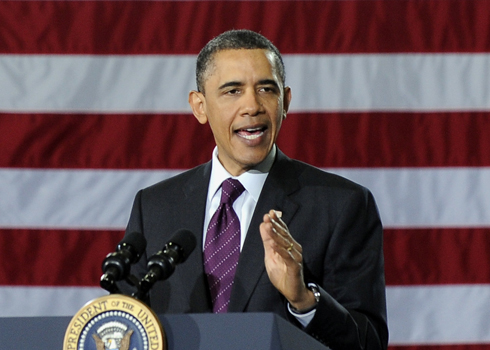President Obama plans to outline an ambitious economic recovery plan for the Middle East and Northern Africa designed to spur economic growth and build on democratic reforms that began in Egypt and Tunisia and have swept to countries across the region this Spring.
In major speech at the State Department Thursday, Obama will announce U.S. steps to cancel nearly a billion dollars worth of Egyptian and Tunisian debt, establish a Egyptian-American private enterprise fund and guarantee up to a billion dollars in borrowing through the U.S. Overseas Private Investment Corporation, a U.S. agency that mobilizes private-sector investment in new and emerging markets, according to senior administration officials.
The speech “comes at a moment of opportunity” for the region, an administration official told reporters during a conference call Wednesday afternoon. The democratic uprisings that began this spring in Tunisia and quickly spread to Egypt, Libya, Yemen, Bahrain and Syria are rooted in the lack of economic opportunity, as well as the demand for more political rights, the officials said, and Obama wants to offer economic incentives to help stabilize these burgeoning democracies.
“Reinforcing economic growth is an important way to reinforce democratic transitions,” said the official, calling the initial components of the plan the beginning of a long-term effort that will play out over a number of years.
Obama’s vision for a wide-ranging economic recovery for the Middle East also comes just days after Gen. Jim Jones, a former Obama national security adviser and a respected voice in foreign policy circles, suggested a new Marshall Plan for emerging democracies in the Middle East and Northern Africa.
After World War II, nearly 64 years ago, President Harry Truman delivered a speech laying out a strategy for revitalizing Europe led by his secretary of state, Army Gen. George C. Marshall. The far-reaching proposal, which became known as the Marshall Plan, summoned broad international and U.S. investment in rebuilding the economies of a war-ravaged Europe and combating the spread of communism in the process.
“From my perspective, it may be time to consider a bold idea which would demonstrate our welcome to the new Egypt by considering a type of Marshall Plan for emerging democratic states like Egypt and which young Egyptians are trying to form,” Jones said at the National Press Club on Monday. “Such a plan would be international in scope as the world has much to gain from any security, economic and governmental assistance that can be provided at this critical time in Egypt’s history.”
Obama administration officials stopped short of making any reference to the large-scale Marshall Plan in previewing Thursday’s speech.
“I think people will have to be the judge of historic analogies,” one official remarked when asked about a comparison to the Marshall Plan.
Their descriptions focused on Egypt and Tunisia as places to begin and included mentions of historic lessons of democratic transitions after WWII and the fall of the Berlin Wall. The officials stressed the need for European Union partners to step up to the plate and help eliminate trade barriers, encourage private investment and eventual inclusion in the World Trade Organization.
U.S. interests are particularly focused on Egypt, where millions of college-educated young people are unemployed and restless for reform and opportunities. The administration officials did not mention Libya, where the Libyan leader Muammar Qaddafi is still clinging to power despite nearly two months of U.S. and NATO-led air strikes aimed at bolstering opposition rebels.
“We believe that Egypt and Tunisia are hugely important,” the official said. “They are at the vanguard of democratic reforms sweeping the region. … If Tunisia and Egypt are able to reinforce these gains through economic development, it empowers them and other countries in the region to pursue positive reforms.”
The speech is not expected to address specific plans to resume negotiations between Israel and the Palestinians, where the Obama Administration has failed to gain any traction, exemplified by the resignation of Special Envoy George Mitchell last week. But the administration has reached out to Israel Prime Minister Benjamin Netanyahu about the speech’s themes, and Netanyahu will meet with Obama Friday and is scheduled to deliver a speech to Congress May 24.
The Obama administration has spent the week meeting with other leaders in the Arab world in advance of the speech and Wednesday ratcheted up the pressure on Syria by expanding sanctions and specifically targeting Syria President Bashar al Assad for his bloody crackdown on anti-government protesters.






